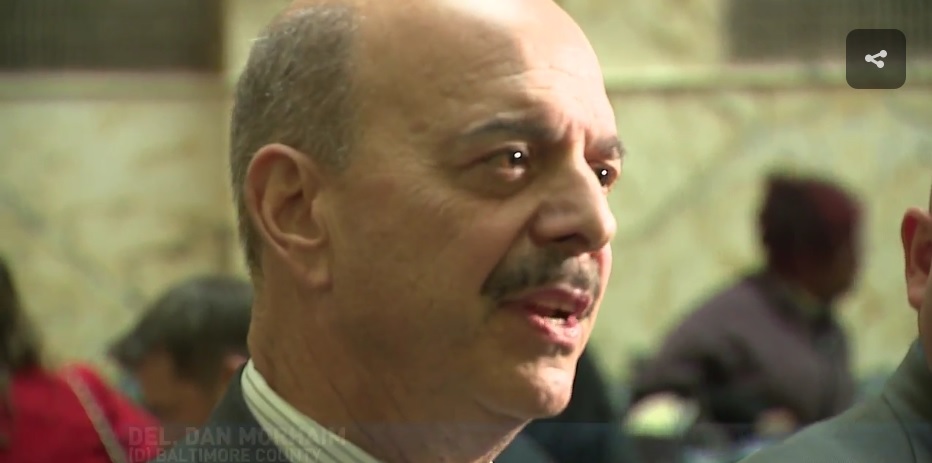Dan Morhaim’s moments of shame
By Barry Rascovar
For MarylandReporter.com
It had to be one of the most painful and humiliating moments of Dan Morhaim’s life.
Last Friday he sat in the House of Delegates chamber as his colleagues voted 138-0 to reprimand him for not informing them and a state commission he had a conflict of interest on medical marijuana issues.
Morhaim, a physician-legislator, kept from them that he had signed on as a paid consultant to a company seeking medical marijuana licenses in Maryland, all the while offering reams of advice and guidance to the very commission setting up rules for awarding those lucrative state licenses.
He broke no laws but he stepped far over the ethics line.
While Morhaim continues to insist “I did nothing wrong,” his colleagues unanimously disagreed.
Panel’s findings
As the legislature’s joint ethics committee wrote in its report, Morhaim’s “belief that he could keep his role as a legislator, advocating for the implementation of policy and regulations for the use of medical cannabis, separate from his position as a paid consultant for a company seeking to enter the medical cannabis business reflects poor judgment to the detriment of the broader interests of the public. . .”
Further, the panel concluded Morhaim’s less than forthright actions “eroded the confidence and trust of the public and other governmental officials who work with legislators, bringing disrepute and dishonor to the General Assembly.”
The panel not only recommended a public reprimand but asked Morhaim to consider making a public apology. He did so in writing but declined to speak on the House floor.
He had not violated disclosure laws, Morhaim wrote. Nor had it been his “intent” to use his elective office for monetary gain. His sin, he explained, was that “I failed to appreciate the public perception of these issues.”
It was not much of an apology. A day earlier he had issued a three-page defense, blaming the media for “erroneous” reports of his activities. He later called what had transpired a “circus” in which his actions had been badly distorted.
Placing the onus on others for his predicament may salve Morhaim’s ego but it won’t sit well with elected leaders or with the public.
Who’s to blame?
After reading the 17-page committee report, it is clear only Morhaim is at fault for what went wrong. It cost him his credibility, his subcommittee chairmanship and his leadership post in Annapolis.
He agreed to have no future communications with the medical marijuana commission or its staff and to exclude himself from legislative activities regarding cannabis.
That’s a big concession from a politician who fought relentlessly and passionately for over a decade to bring medical cannabis to Maryland.
He also is giving up his financial arrangement with the medical marijuana company, Doctors Orders, a compensation deal the joint ethics committee called “substantial.”
Some legislators and ethics groups denounced the punishment as insufficient. Gov. Larry Hogan, Jr., in his haste to throw dirt on Democrats totally mischaracterized Morhaim’s actions, then refused to acknowledge he had gotten the facts wrong and called for Morhaim’s removal from office.
The governor used the Morhaim case to trumpet his call for tougher ethics laws and for placing enforcement under an executive office agency.
While it is obvious language in the ethics statute needs greater clarity, turning adjudication over to the executive branch could be unconstitutional and certainly is impractical.
Public shaming, such as Morhaim’s reprimand, has proved an effective tool for disciplining wayward public leaders since biblical times. It’s the General Assembly’s responsibility to police conduct of its members, just as is true for the U.S. Congress.
Ultimately, though, it is up to voters to determine the fate of lawmakers who stray over the line of acceptable conduct.
Re-election challenge
That is where Morhaim’s toughest battle may lie.
When campaigning begins next year in his northwest Baltimore County district, the physician-delegate will face constant questions and criticism. He could confront significant challengers harping loudly on his reprimand and denouncing his lack of responsible ethical judgment.
It’s an unfortunate turn of events for Morhaim. In his 23 years as a state delegate, he had developed into a standout lawmaker. His medical expertise as an emergency-room physician prove invaluable to his colleagues as they grappled with complex and often technical health-care issues. He has been a leader in much-needed procurement reform efforts in state government, too.
While public shaming is tough for any politician to swallow, Morhaim remains in a position to rehabilitate his badly damaged reputation.
How?
Put his grudges and hurt feelings aside, focus on using his knowledge and experience to help enact solid, progressive legislation and never again be tempted to abandon a strict standard of ethical conduct.
Barry Rascovar’s blog is politicalmaryland.com. He can be contacted at [email protected].

MarylandReporter.com is a daily news website produced by journalists committed to making state government as open, transparent, accountable and responsive as possible – in deed, not just in promise. We believe the people who pay for this government are entitled to have their money spent in an efficient and effective way, and that they are entitled to keep as much of their hard-earned dollars as they possibly can.

